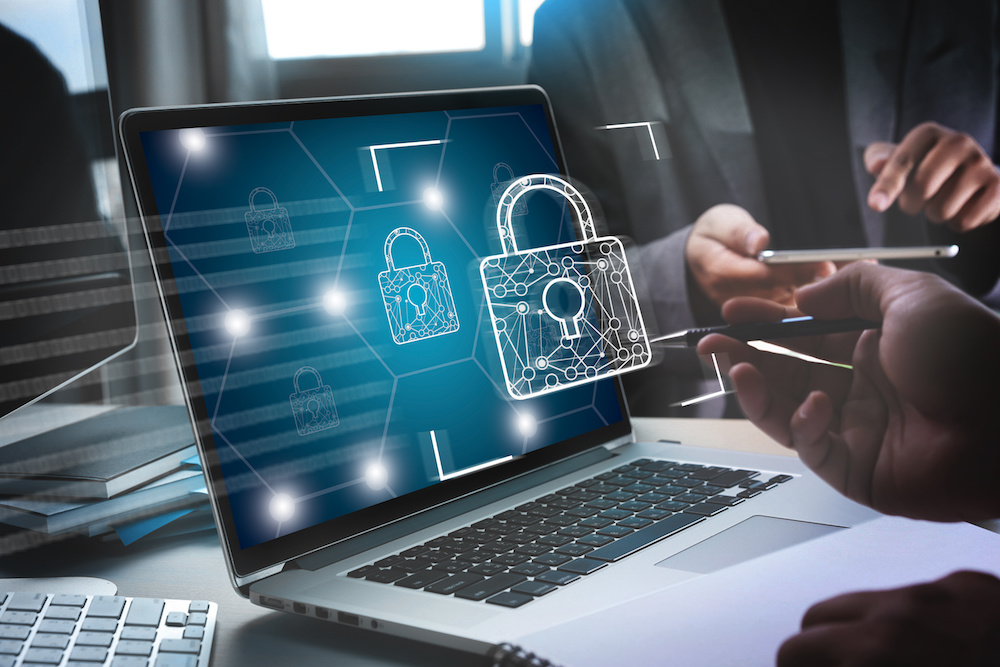
IT security audits have become a pillar of digital risk management for organizations of all types. At a time when cyber threats are pervasive and ever-evolving, security audits can give businesses a much-needed assessment of their organization’s security posture.
Our managed IT professionals explain the importance, processes, and benefits of IT security audits. Find out why SMBs that work with IT hardware on a daily basis should ask their service provider to conduct security audits on a regular basis.
What is an IT security audit?
An IT security audit is a methodical, independent assessment of an organization’s security posture. It aims to identify vulnerabilities, flaws, and risks related to the security of the organization’s information systems, applications, and processes. This type of audit includes an analysis of all elements of a company’s information systems, including hardware (computers, tablets), software (antivirus, firewall) and network and telecom infrastructure. Many companies do not have the internal resources and technical IT skills to carry out a security audit.
This process should be done periodically so companies can stay aware of their overall level of security, and also conform that this level complies with their company security policy and all rules related to information security. Security audits also protect your information system from cyberattacks.
Who needs a security audit?
IT security auditing is for any organization that uses computer systems, networks, or applications to store, process, or transmit sensitive or critical data. In other words, security audits are necessary for all organizations that rely on electronic information systems. This includes small or large businesses, government organizations, financial institutions, healthcare service providers, and cloud service providers.
Key objectives of an IT security audit
An IT security audit consists of several elements, each with a specific security goal.
Identification of major security breaches
Hackers, viruses and malware wreak havoc around the world and cause significant monetary, competitive and psychological damage.
Security audits identify breaches in your organization caused by new processes, electronic devices or technologies. The auditor will perform penetration tests and examine your information system structure, then produce a detailed report that outlines any security flaws that need to be addressed immediately.
Implementation of preventive security strategies
Security audits performed by an IT firm will often include an action plan to enforce computer data security in the company’s computer system and limit network access to authorized people only.
Preventive security strategies involve identifying confidential information that should be protected and defining which employees should be able to access it.
Computer system compliance
IT security auditors are trained to fully comprehend new regulations related to the protection of sensitive data (such as the GDPR) and IT infrastructure management.
Professional auditors can guarantee that a company’s IT systems and processes comply with current regulatory standards. They can also report potential privacy issues and suggest improvements.
Importance of a security audit
An IT security audit is important for a variety of reasons:
- Protects critical business data
- Detects vulnerabilities before cybercriminals do
- Informs the company about its security measures
- Detects physical vulnerabilities
- Enables the development of new security policies within the organization
- Helps the company decide how to respond in the event of a cyberattack
Types of IT security audit
There are several types of IT security audit, each with its own specific goals and methods. Some of the most common types of IT security audit include:
- Infrastructure Audit (Technical Diagostics): identifies vulnerabilities in the company’s IT infrastructure
- Strategic Audit: Analyzes the company’s overall security strategy
- Vulnerability Testing (Vulnerability Assessment): Identifies security vulnerabilities via scans and penetration tests
- Software Stress Testing: Simulates real-world attacks to gauge the company’s responsiveness
- Social Engineering Penetration Test: Assesses employees’ ability to resist manipulation and scams
- Penetration Testing (pen testing): Simulates attacks to identify vulnerabilities in systems and networks.
How do you do a security audit in an SMB?
An IT security audit can involve different things depending on the IT service providers who perform it, but as a general rule, the process includes the following steps:
1. Preparing the audit
- Meetings between the various stakeholders
- Definition of audit objectives
- Definition of audit scope and criteria
- Choice of testing processes
2. Performing the audit
- Mapping of information system(s)
- Configuration analysis
- Vulnerability audit
- Testing, including a penetration test
- Analysis of differences between test results and audit criteria
3. Audit results
- Development of a detailed written, schematic report that includes various recommendations in order of priority
- Explanation of audit results and conclusions to the client
Make Groupe SL your IT security partner
There are many reasons why SMBs should undergo an IT security audit. In fact, a security audit should be the starting point for maintaining a secure IT infrastructure. This is even more true today, as businesses continue to face new challenges related to IT security and teleworking.
It’s important to implement audit recommendations and reinforce cybersecurity strategies properly. Tools should also be regularly updated so they remain safe from cyberattacks. For peace of mind, contact technical support professionals like Groupe SL to effectively protect your IT infrastructure following an audit.
Groupe SL’s managed IT services will guarantee that your IT infrastructure functions properly and your business activities can resume quickly following an incident, thanks to firewall security, Internet links, applications, and work and storage servers.






